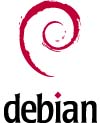Download and install
Build from source (Linux/macOS/Windows)
The source is of Cadabra is distributed via github, see the
kpeeters/cadabra2
repository for more details, including the pre-requisites.
You can build .deb and .rpm packages yourself when building from
source, by running sudo cpack after a successful
build.
Binary packages
Packages for various Linux distributions and an installer for
Windows are available
for download
from github. These are generated automatically on every
release. Installation on macOS can be done through HomeBrew or
MacPorts; see below. There is also a Docker image if you only want
to use Cadabra via Jupyter.
Use these packages at your own risk. Because of time constraints
some of these packages receive almost no testing, so any feedback is
welcome. If you want to help getting these into official
distribution repositories, please let me know.

The AppImage version of Cadabra can be installed on any
reasonably modern Linux distribution and it is completely
self-contained (which is inefficient, so prefer a distro package
below if there is one for your system). Just download and make
the file executable with
chmod u+x *.AppImage. Versions
are provided for
x86_64 and
aarch64 architectures from
the
github
release page.

Packages for Ubuntu 22.04 Jammy and 24.04 Noble are available
from
the
github
release page. Cadabra is now also available from the
official repositories, by installing the
cadabra2
package (though this may not always be the most recent
version). Thanks to Alex Myczko for making this happen.

A package for openSUSE Tumbleweed is available from
the
github
release page. You can still build it on openSUSE Leap, but you will need
to build from source or rely on 3rd party repositories.

Cadabra is now available in Debian 11 (Bullseye) from the
official repositories, by installing the cadabra2
package (though this may not always be the most recent
version). Thanks to Alex Myczko for making this happen.

If you only want to use Cadabra from within Jupyter, you can use
the
official
Docker image at DockerHub. This container exposes the
Jupyter server on a local URL which you can access using your
browser, and stores notebooks in your home directory. Available
for both AMD64 and ARM64 architectures. Be aware that you will
miss out on some of the goodies of the Cadabra notebook
interface.

macOS
Cadabra is available via the Homebrew package manager. This is
the "official" method, in the sense that this package gets
updated and tested automatically on every Cadabra
release. Simply do
brew tap kpeeters/repo
brew install cadabra2
Alternatively, if you want to live on the bleeding edge and
want to run the current development branch, install
cadabra2-devel.
If you encounter problems, please
email
info@cadabra.science
so they can be fixed and other people can benefit from it.
Cadabra is
also
available
via MacPorts,
sudo port install cadabra2 should do the trick. For
more details follow the link above. Thanks to Marius Schamschula
for maintaining this.

Windows 11
A Windows installer for Cadabra is finally available again. There
are some rough edges that still need to be fine-tuned, but it
seems to be mostly functional, including plotting. Download
the
Windows
installer from the github release page (available for x86_64
right now only). All batteries are included so you do not need to
install anything else. Many thanks to Dominic Price for doing most
of the work a few years ago.
Once installed, navigate to your installation folder and
start cadabra2-gtk (sorry, no start menu entry yet). There are
some sample notebooks in the Examples folder.

FreeBSD
Cadabra is available via the FreeBSD package manager. Simply run
pkg install cadabra2. Thanks to Yuri Victorovich for
maintaining this port.
Is your distribution or operating system not listed above? Either
build Cadabra from source (see below) or send an email
to info@cadabra.science to
request a package for your system.








